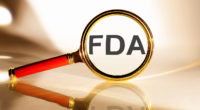EU Proposes New Rules on Pharma Industry for Wastewater Treatment; Industry Opposes
The European bio/pharmaceutical industry is voicing its opposition to the European Commission’s proposed new rules on urban wastewater treatment that would introduce so-called “extended producer responsibility” under which industry will be asked to pay for the treatment of the pollutants that are released from the use of their products in wastewater in the European Union (EU).
Late last month (October 2022), the European Commission proposed to include pharmaceuticals in the EU’s Urban Waste Water Treatment Directive, a directive, first adopted in 1991, concerning the collection, treatment, and discharge of urban wastewater and the treatment and discharge of wastewater from certain industrial sectors. Under the new proposed rules, producers of pharmaceuticals and cosmetics will be required to pay for the cost of removing micropollutants that come from their products and end up in wastewater, thus implementing a “polluter pays” principle. The proposed measure is one element of proposed new rules for treating urban wastewater, which if approved, would go into effect progressively by 2040.
In making its proposal, the European Commission said that currently the pharmaceuticals and the cosmetics sectors are jointly responsible for 92% of the toxic load in wastewaters. “For both sectors, there is sufficient evidence on the existence of micropollutants from these products in wastewater, and there are treatments to remove their harmful residues,” said the European Commission in an October 26, 2022 statement. In the long term, the European Commission says it will assess if other sectors can be added to the extended producer responsibility scheme.
In a joint statement, the European Federation of Pharmaceutical Industries and Associations (EFPIA), which represents innovator-drug manufacturers in Europe, Medicines for Europe, which represents generics and biosimilars companies in Europe, and the Association of the European Self-Care Industry, which represents over-the-counter (OTC) companies in Europe, opposed the EU’s proposal to include pharmaceuticals in the directive and said that pharmaceuticals for human health should be excluded from any such measures.
“Few active pharmaceutical ingredients would have risk for the environment, and these are very well under control given the concentration levels found in European waterways,” the associations said in their joint statement issued on October 26, 2022. “Pharmaceuticals are only a small fraction of the substances that an improved wastewater treatment would remove.”
The bio/pharmaceutical industry groups emphasize that extended producer responsibility for pharmaceuticals “would create a discriminatory model,” in which the pharmaceutical sector would finance wastewater treatment upgrades that would remove micro-pollutants from non-pharma origins, which remain the major unaccounted source of water contamination. They also say that applying extended producer responsibility to human medicines to incentivize the development of “green by design” products does not account for the biological nature of medicines’ action nor for the complexity of medicines authorization based on quality, safety, and efficacy requirements.”
Instead, the bio/pharmaceutical industry trade group emphasize applying detailed proposals in their Eco-Pharmaco-Stewardship program, which provides their recommendations for addressing pharmaceutical effluents in wastewater under guidelines provided by the Innovative Health Initiative, an EU public–-private partnership for funding health research and innovation. Their proposal provides guidelines for the management of manufacturing effluents, awareness-raising on the proper household disposal of medicinal waste, and proposals for an extended environmental risk assessment. “This ambitious program would achieve the required balance of reducing the environmental impact while maintaining patient access to medicines,” they said in their statement.
The heads of the EFPIA and Medicines for Europe both say that the new proposed rules would have a negative impact on access to medicines and note that current industry measures address the issue of pharmaceutical effluents in wastewater.
“The pharmaceutical industry acknowledges the importance of wastewater treatment as an essential part of demographic concentration in large urban areas,” said Nathalie Moll, Director General at EFPIA, in the October 26, 2022 joint statement. “However, the proposed measure would affect the availability of certain medicines, which would be counter to a key principle of the EU’s Strategic Approach to Pharmaceuticals in the Environment that policies must not jeopardize patient access to safe and effective pharmaceuticals. The pharmaceutical industry has put in place an extensive EcoPharmaco-Stewardship program which over the past 15 years has made great progress in minimizing effects of pharmaceuticals in the environment, she said.
“It is frustrating that duplicative and unworkable proposals for levies on medicines to address wastewater management are thrown at the pharmaceutical industry,” said Adrian Van Den Hoven, Director General, Medicines for Europe, in the joint statement. “This undermines our efforts to reduce our environmental footprint and more worryingly, negatively impact patients who need medicines. It is a lose-lose proposal. We call on European leaders to safeguard patient access to essential medicine while working with the pharma sector during the green transition, and not against us.”
Source: The European Commission and Joint Statement by EFPIA, Medicines for Europe, and the Association of the European Self-Care Industry



